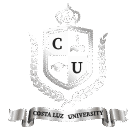For prospective undergraduate students, key information includes application processes, program exploration, and financial aid resources. Understanding admission requirements, choosing a major, and exploring various degree customization options are essential steps. Additionally, securing financial aid through scholarships, bursaries, and student loans is crucial.
Do you have questions?
The degree is an official qualification with a course load of 240 credits, with some exceptions, which qualifies for professional practice since it provides basic general knowledge, specific professional knowledge and transversal knowledge related to comprehensive training. When choosing what to study, it is important to bear in mind that degree qualifications are grouped into five branches of knowledge: Arts and Humanities, Sciences, Health Sciences, Social and Legal Sciences and Engineering and Architecture.
What are ETCS Credit
Degrees are structured in ECTS credits (European Credit Transfer System).
ECTS credits take into account and recognize all the work of students. Thus, one ECTS credit is equivalent to 25 hours of student work , which includes everything:
- Lectures, theoretical or practical.
- Personal study (in the library, at home, etc.).
- Participation in seminars, assignments, internships or projects.
- Preparation and conduct of exams and assessment tests.
AreThere Double Degree
Sí, la CU ofereix la possibilitat de cursar itineraris simultanis que permeten obtenir dos graus de manera simultània.Are there degrees in English?How many credits should I enroll for?Is it mandatory to attend class?Can you study and work at the same time?

